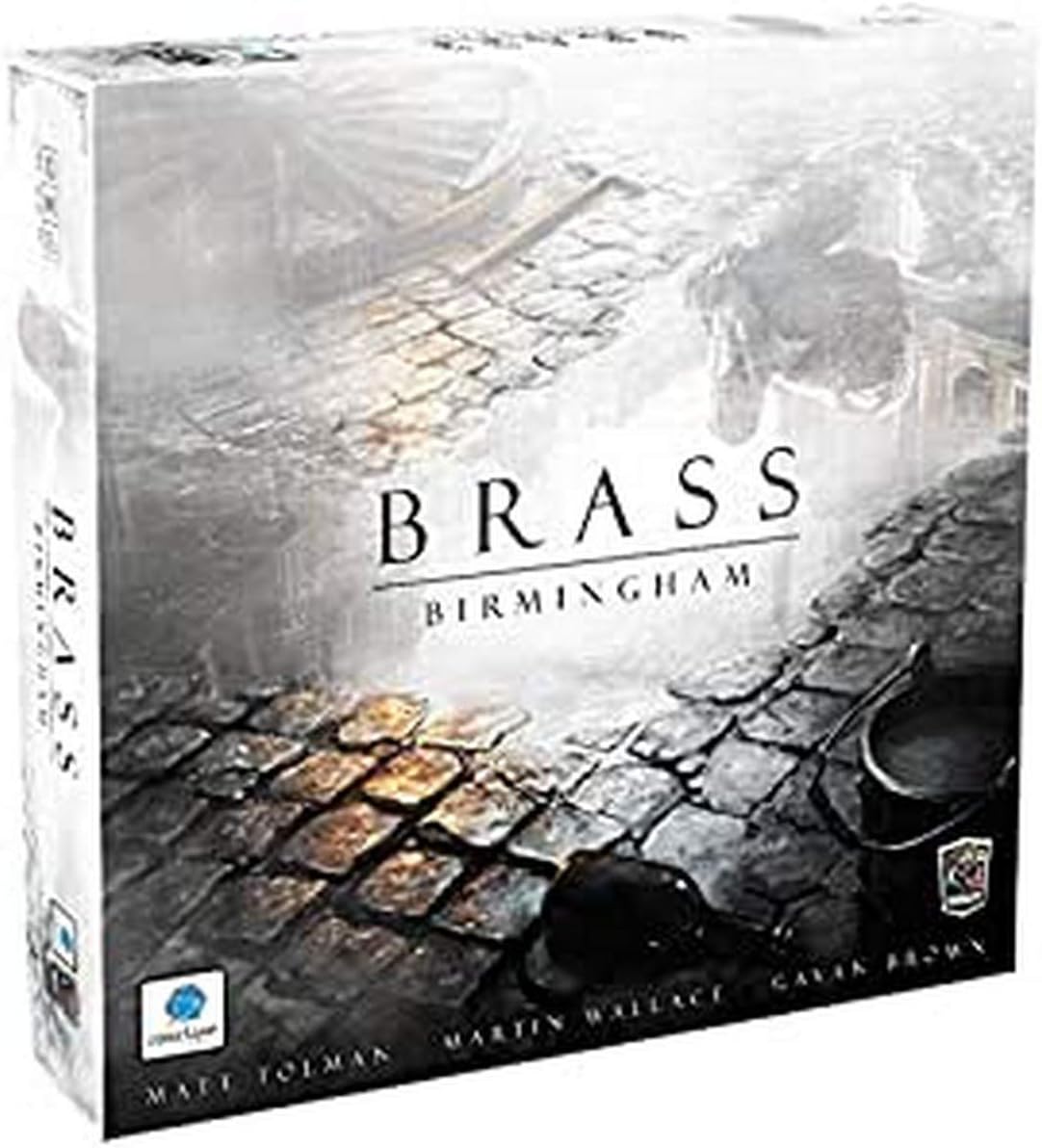We may earn an affiliate commission from links on our site, keeping our content ad-free. Thank you for your support!

Review: Roxley Games’ Brass: Birmingham
Roxley Games’ Brass: Birmingham is a remarkable achievement in the world of strategy board games, offering a deeply engaging and complex experience that will captivate both seasoned gamers and newcomers alike.
Gameplay and Mechanics
Brass: Birmingham is set during the Industrial Revolution in England, challenging players to build and expand their industries, develop networks, and navigate market demands. The game is divided into two distinct eras: the Canal Era and the Rail Era, each introducing unique challenges and strategic opportunities.
The core mechanics revolve around card-driven actions, resource management, and network building. Each turn, players must decide how best to utilize their limited actions—whether to construct industries, develop technologies, establish connections, or take loans. The interplay of these actions creates a rich tapestry of strategic depth, where every decision can have far-reaching consequences.
One of the standout features of Brass: Birmingham is its market system. Players must not only produce goods but also ensure there is a market to sell them to. The dynamic supply and demand mechanics add a layer of realism and unpredictability, requiring players to constantly adapt their strategies.
Component Quality and Artwork
Roxley Games has outdone themselves with the production quality of Brass: Birmingham. The game features beautifully illustrated boards and cards, detailed wooden and plastic components, and high-quality player mats. The artwork by Lina Cossette and David Forest captures the essence of the Industrial Revolution, with intricate details and a cohesive aesthetic that immerses players in the era.
The game’s components are not only visually appealing but also highly functional. The dual-layered player boards, for instance, help keep components organized and prevent accidental disruptions during gameplay.
Replayability and Depth
One of the most impressive aspects of Brass: Birmingham is its replayability. The game offers a wide array of strategies and paths to victory, ensuring that no two games feel the same. The variability in industry tiles, market demands, and player actions creates a dynamic and ever-changing gameplay experience.
Additionally, the game scales well across its player count (2-4 players), maintaining its strategic depth and tension regardless of the number of participants. The solo variant also provides a challenging experience for those who enjoy solo play.
Complexity and Accessibility
While Brass: Birmingham is undoubtedly a complex game, it rewards players who invest the time to learn its intricacies. The rulebook is thorough and well-organized, providing clear explanations of the game’s mechanics and phases. For new players, the initial learning curve might be steep, but the game’s rich strategic depth makes the effort worthwhile.
The game also benefits from a robust online community, with numerous resources, tutorials, and strategy guides available to help new players grasp the finer points of gameplay.
Conclusion
Brass: Birmingham is a masterclass in strategic board game design. Its combination of deep strategy, thematic immersion, and high-quality components makes it a standout title in any board game collection. Whether you’re a fan of economic simulations, historical themes, or simply love a good strategic challenge, Brass: Birmingham is a game that will provide countless hours of engaging and rewarding gameplay.
Highly recommended for anyone looking to delve into a rich, strategic experience that captures the essence of the Industrial Revolution.



